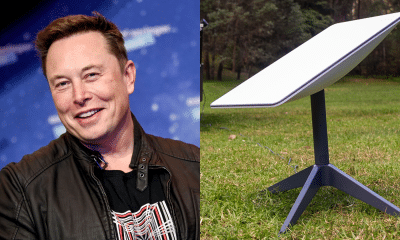Health
Elon Musk’s Brain Chip To Help Blind People See Gets Regulatory Nod

Elon Musk’s brain-chip startup, Neuralink, has received the U.S. Food and Drug Administration’s (FDA) “Breakthrough Device” designation for its experimental brain implant, Blindsight.
Naija News reports that this approval marks a significant step forward in the company’s mission to restore vision in individuals suffering from complete or partial blindness, including those with non-functional optic nerves.
The FDA’s breakthrough designation is reserved for medical devices that address severe or life-threatening conditions, fast-tracking their development and approval processes.
Neuralink announced the milestone on its X page, inviting patients to join their registry and apply for positions within the company.
“We have received Breakthrough Device Designation from the FDA for Blindsight.
“Join us in our quest to bring back sight to those who have lost it. Apply to our Patient Registry and openings on our career page,” Neuralink wrote on its X page on Tuesday.
Elon Musk, also sharing the news on his X social media account, emphasized Blindsight’s revolutionary potential.
Musk wrote, “The Blindsight device from Neuralink will enable even those who have lost both eyes and their optic nerve to see.
“Provided the visual cortex is intact, it will even enable those who have been blind from birth to see for the first time.
“To set expectations correctly, the vision will be at first be low resolution, like Atari graphics, but eventually it has the potential to be better than natural vision and enable you to see in infrared, ultraviolet or even radar wavelengths, like Geordi La Forge.”
Musk cautioned that initial vision through Blindsight might be low resolution, similar to early video game graphics, but he highlighted its potential to eventually surpass natural vision.
The device could enable vision in various wavelengths, including infrared and ultraviolet, similar to the fictional Geordi La Forge from “Star Trek.”
Neuralink, co-founded by Elon Musk in 2016, focuses on pioneering brain-computer interfaces aimed at revolutionising the treatment of neurological conditions.
The company’s flagship technology features a brain implant that decodes neural signals and transmits them wirelessly to external devices such as computers and smartphones.












